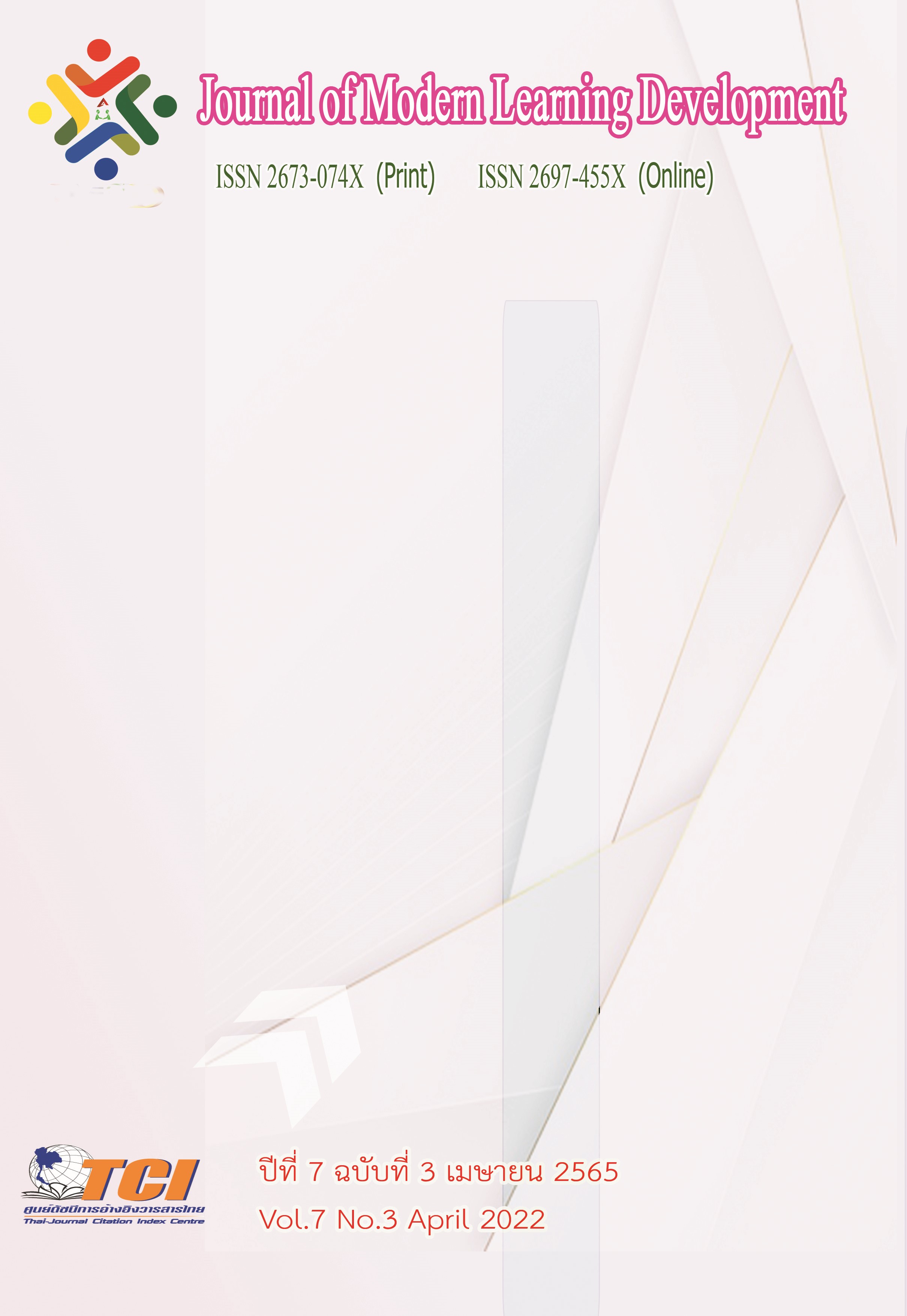The Performance on Cooperative Learning Activities by Using English Media for Mathematic Teaching of Students in Majoring Mathematics of Phranakhon Rajabhat University
Main Article Content
Abstract
The purposes of this research were to 1) compare the pretest-posttest of mathematical achievement using cooperative learning activities and English instructions-based teaching and 2) attitude in cooperative learning activities and English instructions-based teaching. The samples were undergraduate students teacher in mathematics program in the second semester of 2019 academic year at Phranakhon Rajabhat University by cluster random sampling, 1 classroom: 32 students. The research tools consisted of 1) instructional plans, 2) mathematical problems tests, and 3) questionnaires on attitude in cooperative learning activities and English instructions-based teaching. This includes index of item objective congruence values of mathematical problems tests and questionnaires on attitude since 0.67-1 and 1 respectively. The data were analyzed by using arithmetic means, percentage, standard deviation, and t-test dependent.
The research results revealed that:
1. The posttest mean score of student’s achievement after learning by using cooperative learning activities and English instructions-based teaching in mathematics was significantly higher than that of the pretest mean score at .05 and
2. The attitude in cooperative learning activities and English instructions-based teaching of students teacher in mathematics program was found at the highest level.
Article Details
References
Bruffee, K. A. (1993). Collaborative learning: Higher education, interdependence, and the authority of knowledge. Baltimore, MD: Johns Hopkins University Press.
Cranton, P. (1996). Types of group learning. In S. Imel (Ed.), Learning in groups: Fundamental principles, new uses, and emerging opportunities. New Directions for Adult and Continuing Education, No.71. San Francisco: Jossey-Bass.
Malangtupthong, P., Angganapattarakajorn, V. & Nualpang, K. (2015). The effects of organizing inductive and deductive learning on Mathematical reasoning and written communication abilities in number theory of Mathayomsuksa IV students. Journal of Education. 26 (2). 102-113. (In Thai)
Ma-oon, R. (2016). Effective teaching and learning management in higher education. Journal of Southern Technology. 9 (2), 169-176. (In Thai)
Methakunavudhi, P. (2000). Learning and teaching management that is student-centered. Bangkok: Chulalongkorn University Printing House. (In Thai)
Ministry of Education. (2014). Office of the Basic Education Commission: Ministry of Education’S Guidance on Teaching and Learning English Language Reformation. Bangkok: Jamjuree product. (In Thai)
Ministry of Education. (2014). Guidelines for the announcement of the Ministry of Education regarding reform policies Teaching English. Bangkok: Jamjuree product. (In Thai)
Panawas, S. (2019). English insertion in non-English subjects. Online. Retrieved May 13, 2019 from : https://www.tci-thaijo.org/index.php/sduhs/article/download/99385/77243. (In Thai)
Potcharapanpong, S. (2012). Developing activities for teaching science subjects with English inserts to promote science learning achievement and satisfaction with science learning for students Grade 4. The 6th academic conference for presenting graduate research results. Surin: Surin Rajabhat University.
Smith, K. A. (1996). Cooperative learning: Making “group work”. In T. E. Sutherland & C.C. Bonwell (Eds.), Using active learning in college classes: A range of options for faculty. New Directions for Teaching and Learning, No. 67. San Francisco: Jossey-Bass.


